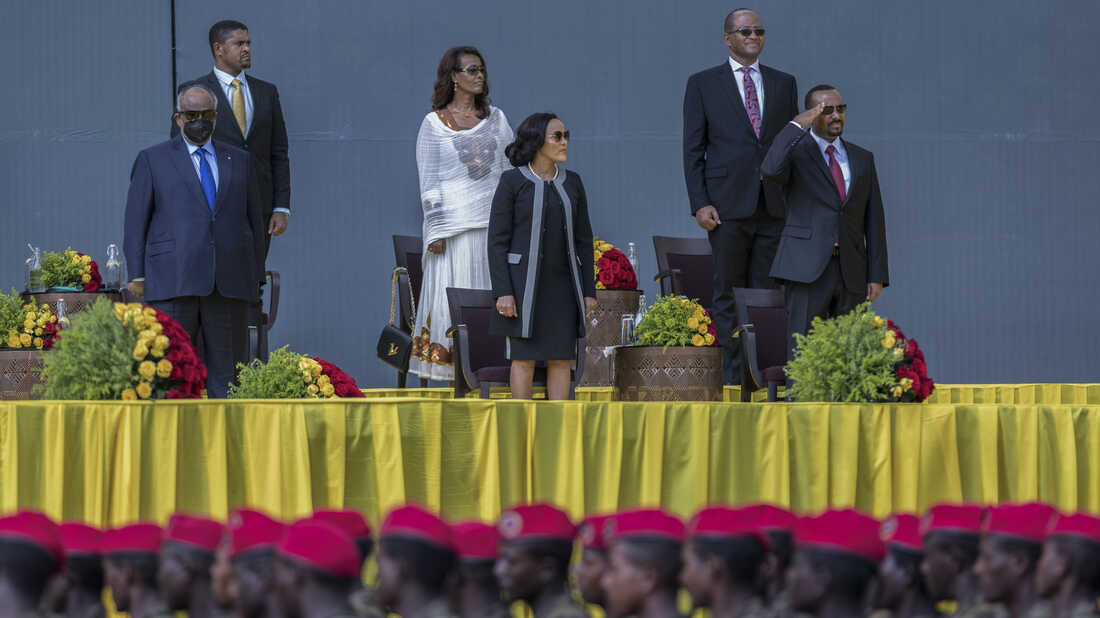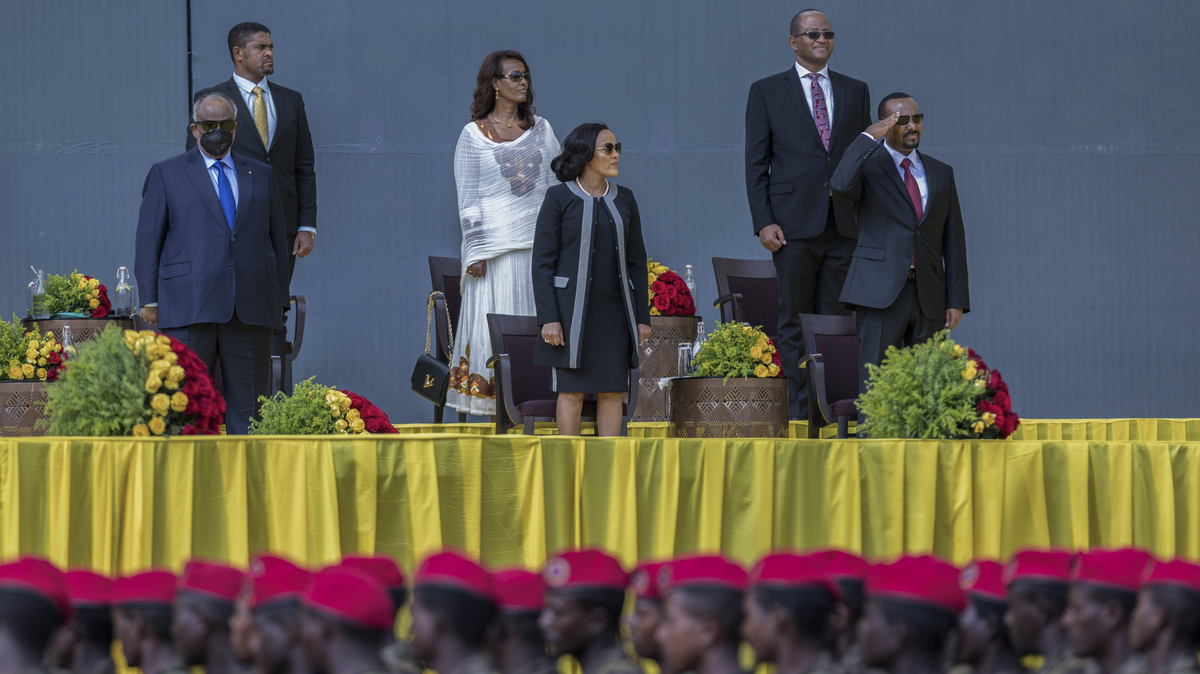
Ethiopia's Prime Minister Abiy Ahmed, right, First Lady Zinash Tayachew, center, and Djibouti's President Ismail Omar Guelleh, left, attend Abiy's inauguration ceremony after he was sworn in for a second five-year term, in the capital Addis Ababa, Ethiopia Monday, Oct. 4, 2021. Mulugeta Ayene/AP hide caption

Ethiopia's Prime Minister Abiy Ahmed, right, First Lady Zinash Tayachew, center, and Djibouti's President Ismail Omar Guelleh, left, attend Abiy's inauguration ceremony after he was sworn in for a second five-year term, in the capital Addis Ababa, Ethiopia Monday, Oct. 4, 2021.
Mulugeta Ayene/APHate and division on Facebook are not just a problem in the U.S. That's one of the messages whistleblower Frances Haugen took to Congress last week, where she accused Facebook's algorithms of quote, "literally fanning ethnic violence in Ethiopia," a country that's endured nearly a year of civil war.
Freelance reporter Zecharias Zelalem has been keeping track of how inflammatory posts on Facebook have led to attacks in the real world.
And NPR's East Africa Correspondent Eyder Peralta describes what Ethiopia looks like from the ground as he moves closer toward the conflict.
Email us at
This episode was produced by Lee Hale. It was edited by Fatma Tanis, Matthew Ozug and Brianna Scott with help from Mark Katkov and Eyder Peralta. Our executive producer is Cara Tallo.

 Live Radio
Live Radio